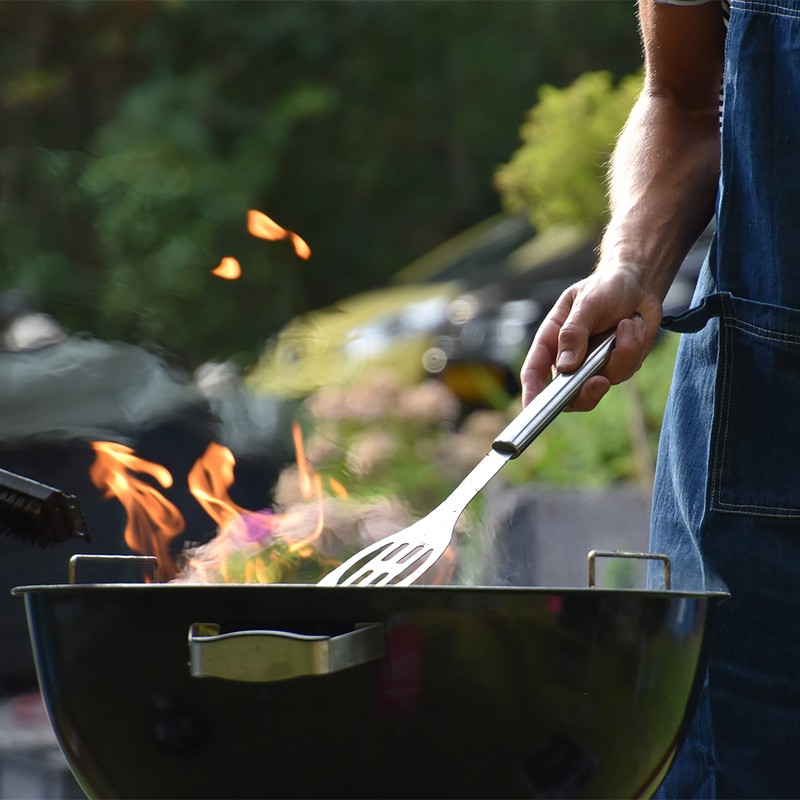The Ultimate Guide To The Best BBQ
First of all, Adam, what should you look for when buying a BBQ?
For me, there are five key factors…
Fuel type
There are three types: gas, coal and dual fuel. What you choose will come down to convenience and the type of cooking you want to be doing.
Budget
BBQs and grills vary dramatically in price. Dual-fuel BBQs tend to be the most expensive, and ‘eggs’ (ceramic smokers/grills) can also set you back a lot. There are some great budget options, though, such as the Weber Kettle, which is one of the most well-known BBQs.
Location
Do you have a big enough space? Are you cooking in a communal garden with lots of neighbours? The answers to these questions will determine what BBQ to buy.
Build quality
The best way to check this is by researching and looking at reviews. It’s important to find out what type of build quality your potential new BBQ is before purchasing.
Features & add-ons
From temperature gauges to ash catchers and electronic thermometers, there’s a huge variety of added extras to consider. Think about the features you want before you purchase the main grill, as some may have them incorporated already.
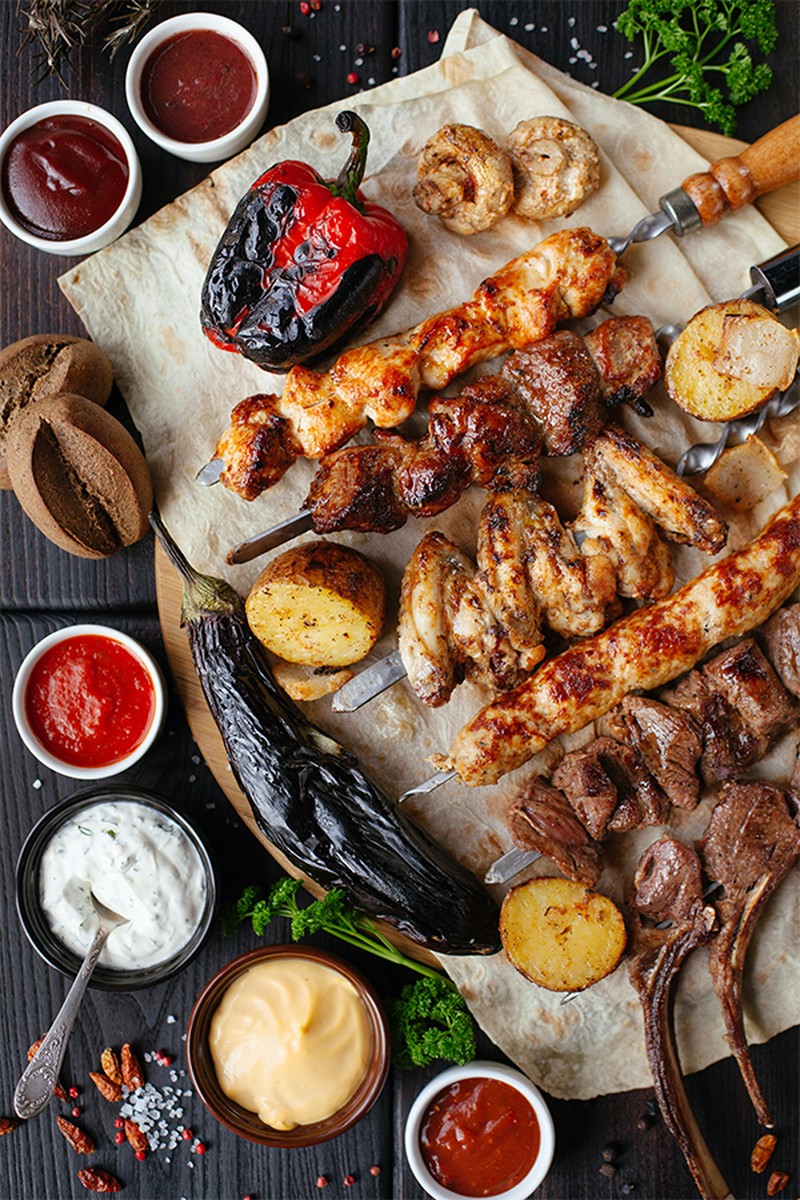
Why are some BBQs so much more expensive than others?
It's the same as anything: you pay for quality. On the outside, a cheap BBQ may look the same, but when you come to use it, you will certainly see some flaws. Even opting for the cheaper of the top-tier BBQs, such as the Weber Kettle, will get you a brilliant build quality that will last for years.
What’s your go-to BBQ brand?
This very much depends on what style of cooking I am going for. Brands such as Weber would always be my first suggestion for someone who wants to get into smoking food, with the ability to grill normally with charcoal. There are some more expensive options such as Big Green Egg, Char-Broil, Outback and Napoleon. All are excellent, but on the pricey side.
For people with little outside space, what are some smaller or less smoky BBQs?
There are a variety of different options, depending on exactly how small the space is. Health and safety has to come first; sometimes, sadly, it just isn't possible to use a grill on a balcony. If it’s safe to do so, great compact options include the Weber Q1200, which is a smaller gas grill, George Foreman electric grills, which are great for both outdoor and indoor cooking, and the Char-Broil Patio Bistro, an electric grill that looks like a gas one, with a single burner.
Any must-have tools?
It's worth having the classic spatula and tongs, but my go-to is a wireless thermometer for low and slow cooking. Food thermometers are your best friend when BBQ-ing and will tell you when something is ready. The Thermopro TP20 comes in at a great price and allows you to keep an eye on your cook without having to lift the lid. For charcoal BBQs, another great addition is a chimney starter – this makes it much easier to get the coals going.
When it comes to gas versus charcoal, which is best?
It depends. If you are after the convenience of being able to quickly fire up the grill and get cooking, a gas grill is the one for you. If you want the versatility of being able to cook low and slow, and over hot coals, charcoal is the one.
What kind of charcoal should you use?
There are a few different types, the main ones being briquettes and lump charcoal. Lump charcoal is the classic charcoal, whereas briquettes are designed to stay at one constant temperature for longer. These are better for low and slow cooking.
Can you get sustainably sourced charcoal?
Yes, more and more companies are offering this. Big Green Egg offers natural charcoal and some companies – often small local businesses – offer 100% sustainable charcoal options. I opt for The Oxford Charcoal Company.
Talk to us about wood chips…
Wood chips are just designed to give you a smokey flavour. They won't burn anywhere near hot enough to cook with alone.
Lid down or lid up when cooking?
Depends on what you are cooking. If you are cooking in a way that you need to sear something such as burgers, steaks or veggies, you want the lid open. If you shut the lid, it works in a similar way to an oven, and you won't necessarily get that sear you may be after.
Is ‘low and slow’ always best?
We absolutely love the low and slow method. It allows you to get a smokey flavour and achieve some absolutely beautiful cooks. However, it does take some practice on a BBQ as you need to manage the temperatures.
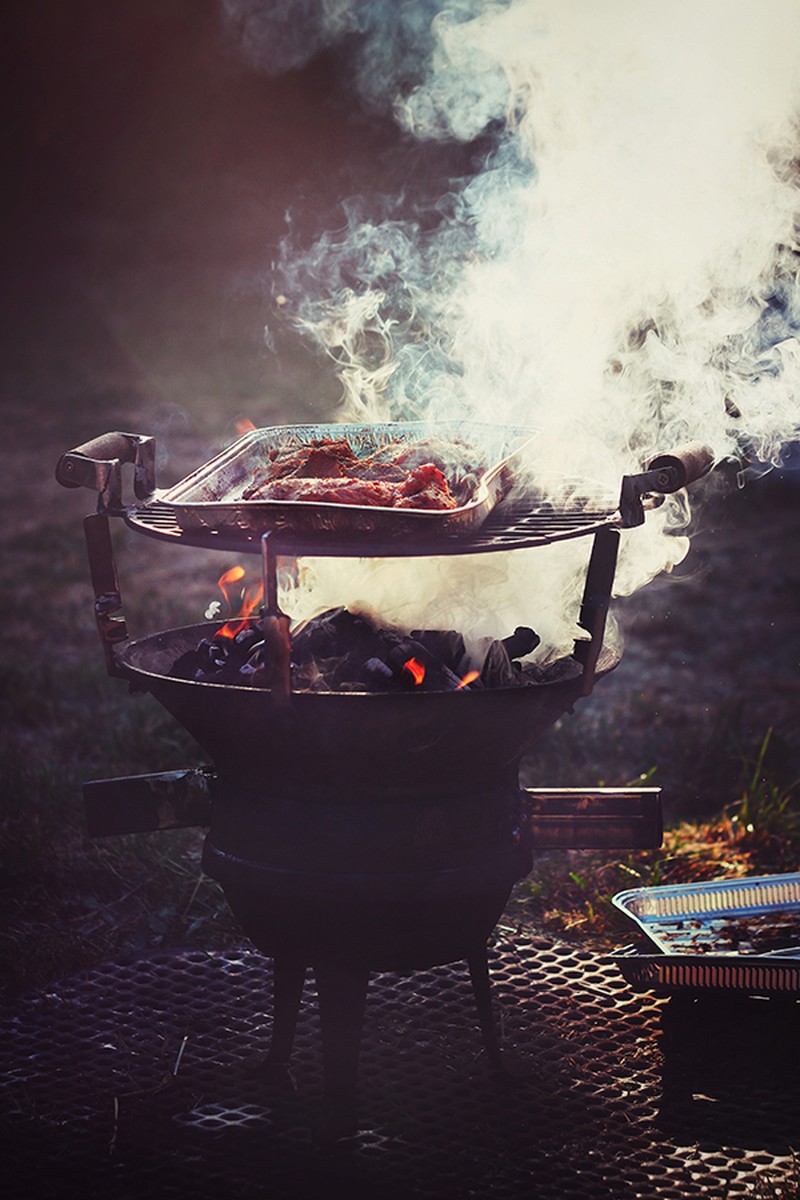
Do you need to watch over the grill the whole time?
As long as it's in a safe location, no. However, I personally like sitting out there near the grill, drink in hand.
What’s the best way to cook food on skewers?
I have a few tips on this. Only use one type of veggie or meat per skewer. Check the internal temperatures of the meat with a thermometer. Don't cook vegetables over direct heat for too long. Try to keep everything the same size. And don't try and get as much as possible on the skewer – keep some space between each element.
How long should you marinate meat for?
Everyone has their own ways of doing things. There are so many combinations of meats, rubs and sauces. Most marinades will have done their thing in a few hours. As a side note, sometimes acidic marinades can actually toughen meat, so bear that in mind when cooking.
What’s the best way to clean a BBQ?
Nobody likes cleaning a BBQ, but it's one of those jobs that has to be done. It depends what type of grill you are working with, as different types need different cleaning methods. Char-Broil has a great guide on this.
And does it have to be cleaned after every use?
It’s not much fun, but the cleans will be easy if they are regular. We suggest cleaning your BBQ once it's safe to do so, just to make sure you don't end up with rusty grates.
How do you correctly store your grill so it doesn't go rusty?
Cleaning it is the best way to make sure you don't get rust. If you aren't able to put the BBQ away anywhere due to size, a simple cover will do the trick.
And finally, what’s your number one BBQ cooking tip?
I’ve got two. For low and slow cooking, don’t lift the lid. For all types of BBQ-ing, check your meat’s internal temperatures with a thermometer before serving.
ADAM’S BBQ COOKING TIPS
Meat
- Use high-quality charcoal and natural firefighters rather than lighter fluid.
- Let your meat rest before tucking in.
- Plan your cook by working out your timings beforehand.
- If you’re grilling low and slow, leave the lid closed.
- Remember that different meats require different cooking methods. For example, a pork shoulder is going to be low and slow, whereas burgers are normally cooked over a direct heat. Don’t throw everything on at once and expect it all to be ready at the same time.
Fish
- Use firm-flesh fish such as salmon, sea bass, tilapia or cod.
- Simple vegetable oil and salt will work wonders.
- Most fish can be cooked in direct heat above the grills.
- Turn the fish over halfway through.
- Smaller, more delicate types of fish will need wrapping in foil.
Veggies
- Try more vegetables. Most people stick to the classics like corn, but don’t be afraid to get experimental.
- Remember that most vegetables take no longer than ten minutes to cook. Try to get them to have the largest surface area possible – apart from tomatoes, which ideally would be small and on the vine.
- Use good oil. Vegetables need to be oiled to prevent sticking to the grates and burning.
- Use veggies that are in season as they will have a much better flavour that will be enhanced by cooking them on a grill.
- If you’re cooking kebabs, soak skewers in water to avoid them burning.
Visit SmokeGuys.co.uk
Shop SLMan’s pick of the best BBQs and tools below...
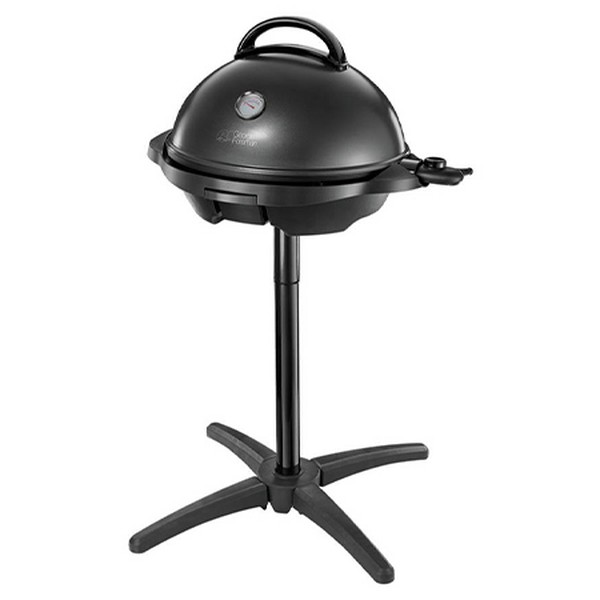
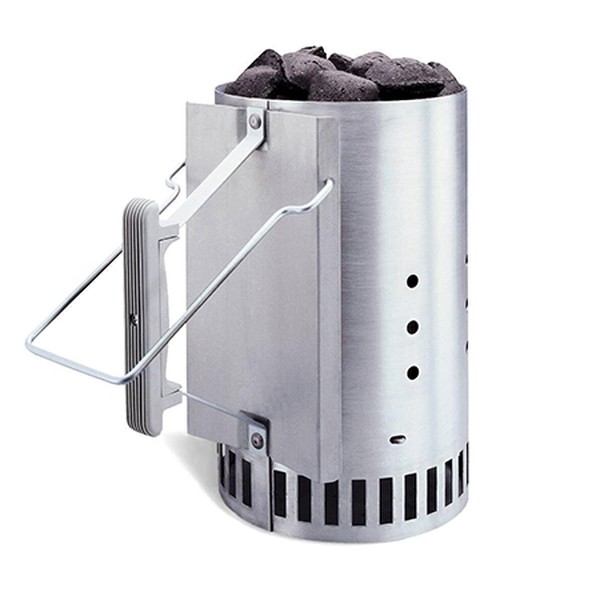
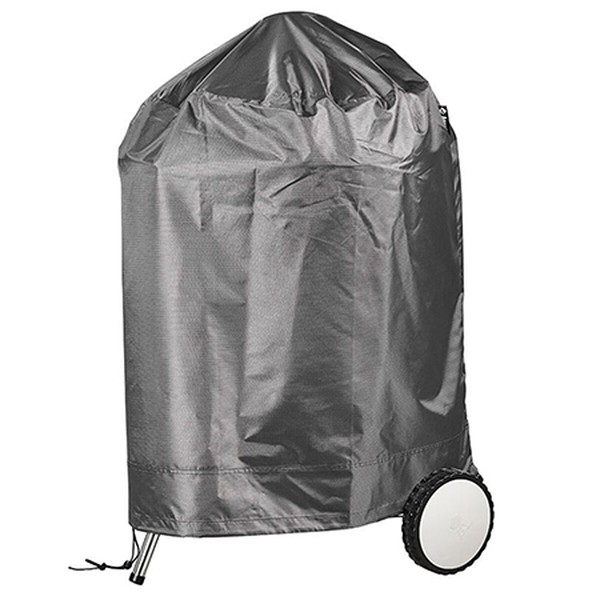
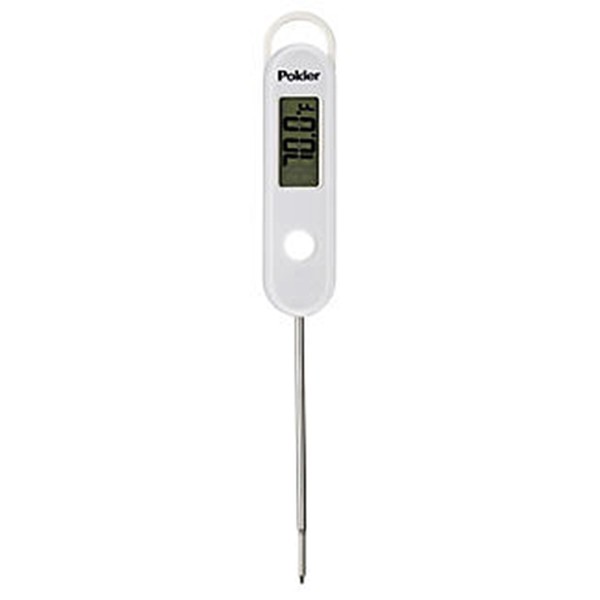
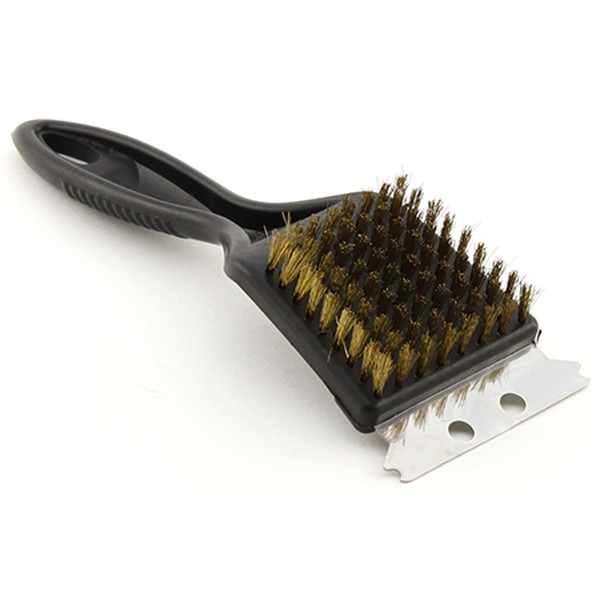
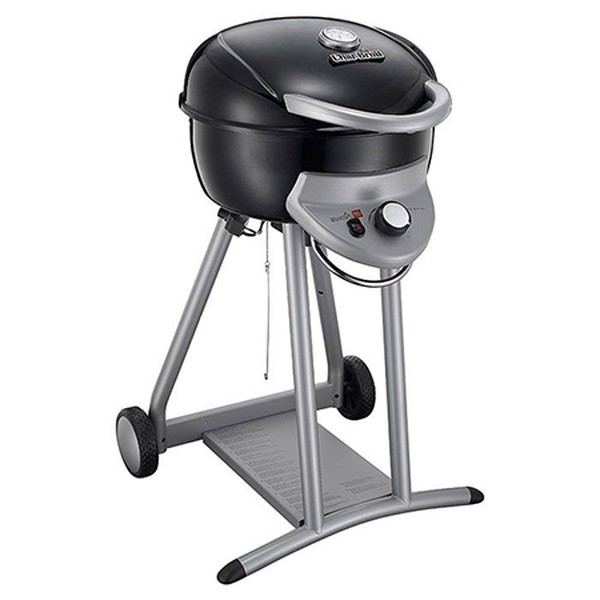
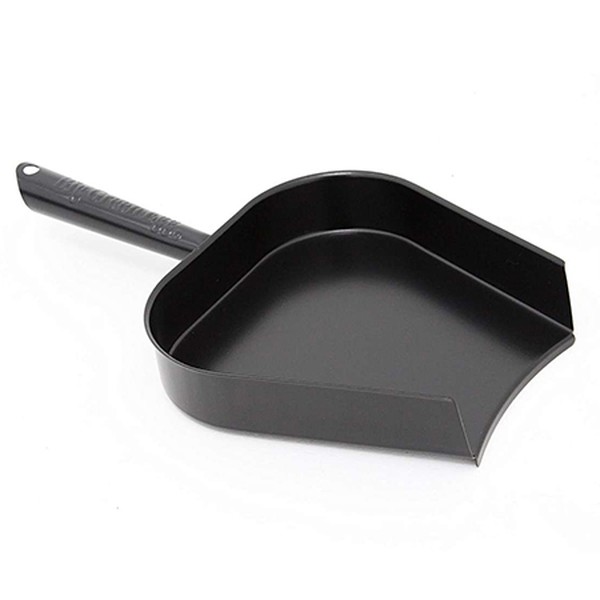
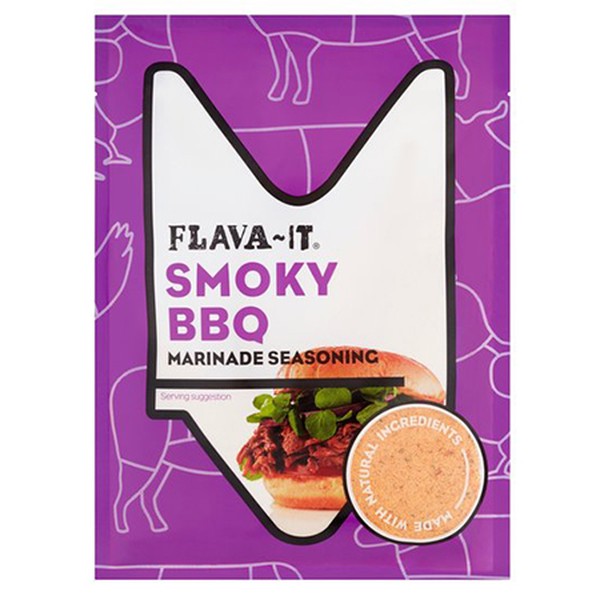
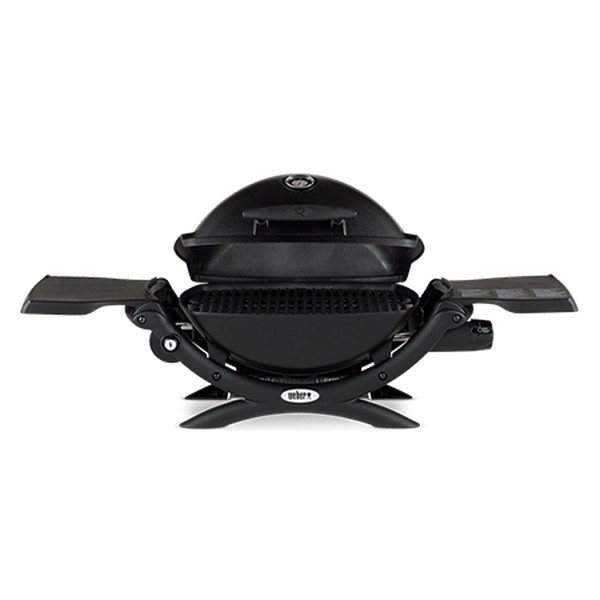
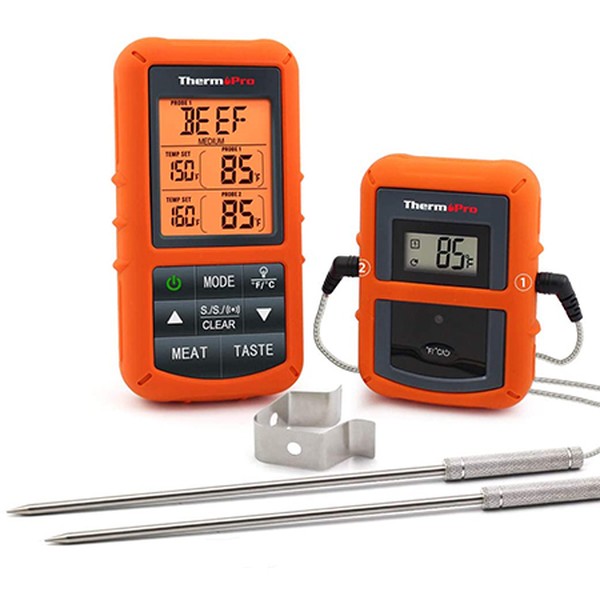
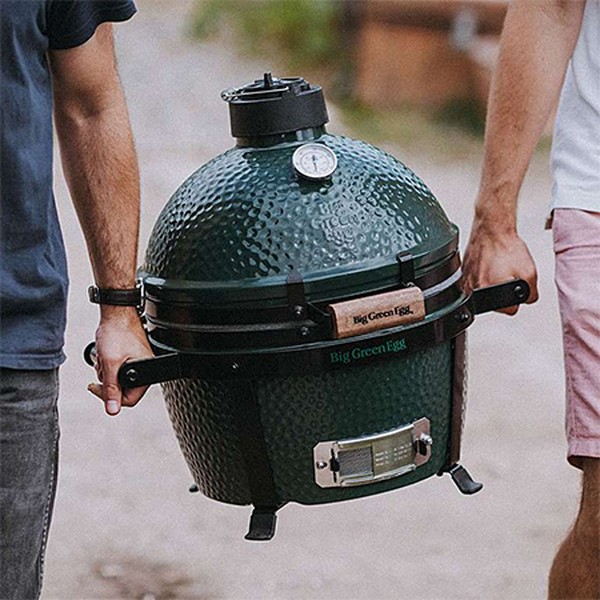
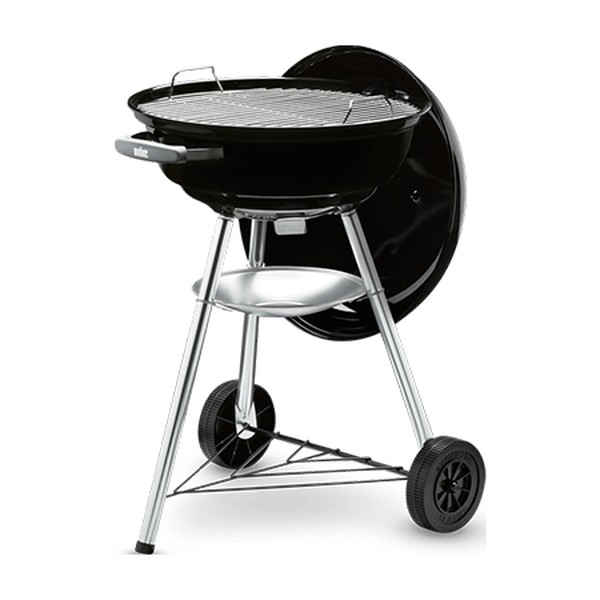
DISCLAIMER: We endeavour to always credit the correct original source of every image we use. If you think a credit may be incorrect, please contact us at [email protected].
